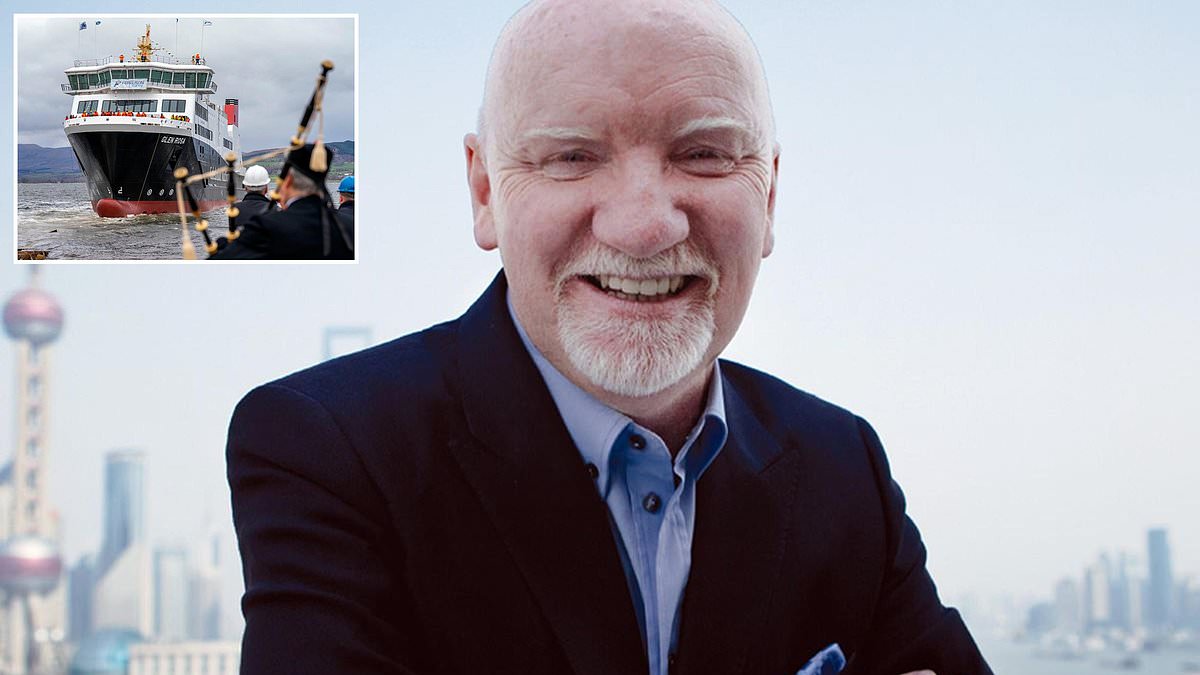High taxes and red tape under the SNP have inflicted a decade of ‘mismanagement’ on Scotland’s economy, one of the country’s most successful businessmen has said.
In a scathing attack, Sir Tom Hunter said ‘the politicians don’t get it’ and the Scottish Government should ‘get out of the way’ more often.
‘There has never been an economy that has taxed its way to growth,’ Sir Tom said.
His comments came as MSPs were told higher income and property taxes are damaging recruitment efforts north of the Border.
Representatives of Scotland’s vital financial services industry warned Scotland had hit a ‘tipping point’ because of the tax gap with the rest of the UK, making financial centres like Leeds, Belfast and Manchester more attractive to top earners.
Scottish Financial Enterprise chief executive Sandy Begbie said: ‘In our sector, to come to Scotland is a much, much harder sell now than it has previously been.’
Sir Tom, 63, a millionaire entrepreneur and philanthropist who made his fortune in retail before expanding into property and technology, is not aligned with a political party.
However, he has become a pungent critic of the widening the tax gap under the SNP.
The proposed budget for 2025-26 would see any Scottish worker earning more than £30,318 pay more income tax from April than if they lived elsewhere in the UK.
Someone on a £50,000 salary will pay £1,528 more compared to the rest of the UK, rising to £3,332 at £100,000 and £5,963 at £150,000.
Business leaders fear this tax divergence, which includes a Scotland-only 45p income tax rate between £75,001 and £125,410, makes attracting and keeping senior staff harder.
Speaking to the Times, Sir Tom said: ‘For Scotland over the past ten years I think there’s been financial mismanagement of the Scottish economy, because the politicians don’t get it.
‘It is businesses who want to grow, who want to employ another person, who pay their taxes, that pay for the NHS, that pay for the education system.
‘We need to have a thriving economy if we want to have the civil society.
‘It really frustrates me that successive governments don’t realise we’ve got to encourage business, because that way we’ll get the tax-take up, and therefore we can invest in our public services.’
He said John Swinney appeared to understand business better, but more must be done to spur private investment, including cutting the burden of red tape.
Sir Tom added: ‘Somebody should be looking and just say, “Right, hang on a minute who benefits from this regulation and why is it there? Can we get rid of it? Can we simplify business?”
‘Then I actually want government to get out of the way.’
In recent evidence to Holyrood’s finance committee, Mr Begbie also warned Scotland’s high property sales tax may put people off moving to Scotland.
He said: ‘You pay significantly more in Scotland than you will pay elsewhere, above a certain level. For people who are coming to Scotland to take up these high-paid and well-paid jobs, that is a significant difference. It can be tens of thousands.’
In Scotland, buyers pay Land and Building Transaction Tax (LBTT) on homes above £145,000, starting at 2 per cent and rising in steps to 12 per cent above £750,000.
In England, Stamp Duty Land Tax (SDLT) on residential properties starts at £250,000.
Someone buying a £750,000 home in England would pay £25,000 SDLT, while the LBTT bill for the same value home would be almost twice as much – £48,350 – in Scotland.
Tory finance spokesman Craig Hoy said: ‘SNP ministers had the chance to undo the damage done by their punishing tax rises in December’s budget, but they chose to deliver more of the same. It’s clear the Nationalists have no vision for the future of the country, its economy or the business environment and John Swinney is flat out of ideas.’
Business minister Richard Lochhead said: ‘Under John Swinney’s leadership as first minister we’ve built a firm economic foundation over the past year with steady growth and rising wages. The draft Scottish budget 2025-26 outlines significant support for business growth and enhanced measures to attract private investment in Scotland.
‘This includes a competitive non-domestic rates regime, including a freeze to the basic property rate, delivering the lowest such rate in the UK for the seventh year in a row, and maintaining the lowest property tax rate in the UK for over 95 per cent of nondomestic properties in Scotland. More taxpayers moved to Scotland than left in recent years.’
